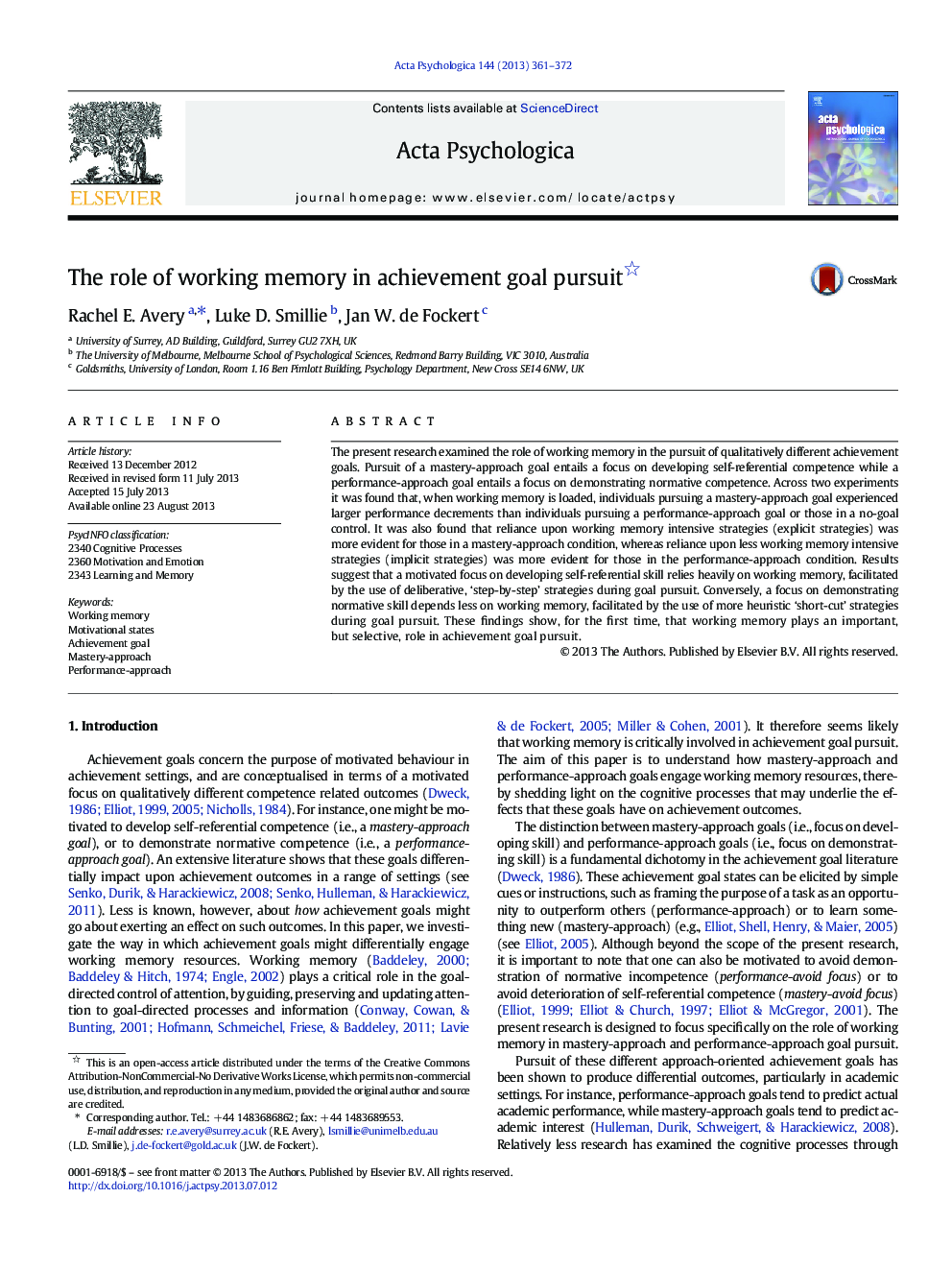| Article ID | Journal | Published Year | Pages | File Type |
|---|---|---|---|---|
| 10453783 | Acta Psychologica | 2013 | 12 Pages |
Abstract
The present research examined the role of working memory in the pursuit of qualitatively different achievement goals. Pursuit of a mastery-approach goal entails a focus on developing self-referential competence while a performance-approach goal entails a focus on demonstrating normative competence. Across two experiments it was found that, when working memory is loaded, individuals pursuing a mastery-approach goal experienced larger performance decrements than individuals pursuing a performance-approach goal or those in a no-goal control. It was also found that reliance upon working memory intensive strategies (explicit strategies) was more evident for those in a mastery-approach condition, whereas reliance upon less working memory intensive strategies (implicit strategies) was more evident for those in the performance-approach condition. Results suggest that a motivated focus on developing self-referential skill relies heavily on working memory, facilitated by the use of deliberative, 'step-by-step' strategies during goal pursuit. Conversely, a focus on demonstrating normative skill depends less on working memory, facilitated by the use of more heuristic 'short-cut' strategies during goal pursuit. These findings show, for the first time, that working memory plays an important, but selective, role in achievement goal pursuit.
Keywords
Related Topics
Life Sciences
Neuroscience
Cognitive Neuroscience
Authors
Rachel E. Avery, Luke D. Smillie, Jan W. de Fockert,
